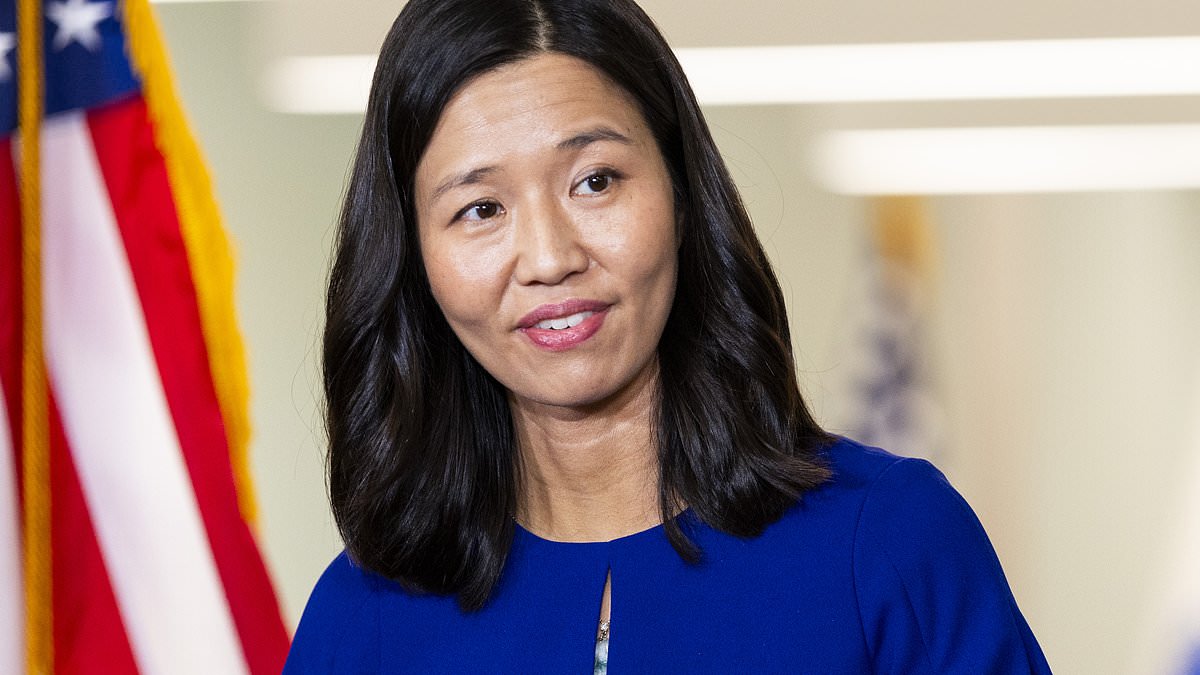The mayor of Boston has promised to defy president-elect Donald Trump’s mass deportation efforts in ‘every possible way’.
Mayor Michelle Wu has said that the city will continue to protect immigrants under the threat of deportation.
‘Elections have consequences, and the federal government is responsible for a certain set of actions, and cities – no individual city – can reverse or override some parts of that,’ Wu said on WCVB.
She cited Boston’s status as a sanctuary city under the Trust Act passed in 2014.
This act limits cooperation with some federal immigration laws and prohibits Boston police, and other city departments, from cooperating with ICE. The Trust Act does allow for cooperation in criminal matters.
As Trump’s mass deportation threats loom, towns across Massachusetts have reaffirmed that commitments to remaining sanctuary cities.
‘We want immigrants to know that it is safe for everyone to be able to feel comfortable reaching out for emergency services, to report a crime, to ask for help, and generally, to be part of our community,’ Wu said.
Trump’s election campaign was heavily based on mass deportation and the removal of illegal immigrants, and he is expected to act on these promises as soon as he is in office in January.
Trump has shared on social media that he is preparing to declare the immigrant crisis a national state of emergency and use the US military to conduct deportations.
Many Democratic states are preparing to counter his plans, including Governor Maura Healey, also in Massachusetts, who has said that her administration will not cooperate.
Wu said that her administration is ‘actively planning for a number of different scenarios,’ according to Boston.com, and she added that the logistical problems including staffing issues could get in the way of Trump’s promises.
‘In places where that is not the case… we still have other mechanisms where we can identify spaces that might be most targeted and think about protections there,’ Wu said on GBH.
Researchers are estimating that the president-elect’s plans could cost more than $300 billion, exacerbate labor shortages and require hiring thousands of new government employees and law enforcement officers.
The American Business Immigration Coalition estimates agricultural output could fall between $30 and $60 billion if Trump’s policy is implemented, with farmers expressing alarm about potentially losing their workforce, reported Newsweek.
Wu admitted that Boston’s resources, however, had been stretched due to a recent influx of migrants. The surge, with the ongoing housing crisis, has overwhelmed shelters for more than a year, according to Boston.com.
‘What we can do is make sure that we are doing our part to protect our residents in every possible way, that we are not cooperating with those efforts that actually threaten the safety of everyone by causing widespread fear and having large-scale economic impact,’ she said.
Wu hopes to increase direct outreach to residents, making sure they are not fearful of contacting the city or requesting services.
‘Our city has always held up as a national example of what’s possible. That historically can be used to try to tear down what it means for a community to be welcoming to all but it’s also even more important right now to provide proof of government working well,’ she added.
